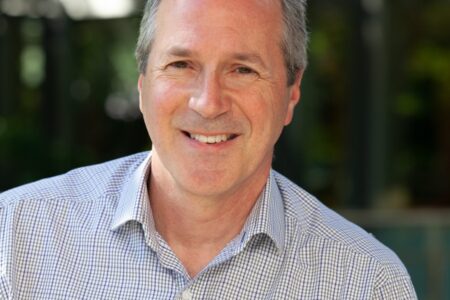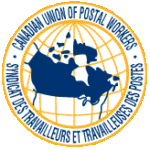INTERVIEW: Meet our new CAO, Cecile Arnott
Cecile Arnott is completing her final two weeks as CFO and deputy CAO at the City of Grand Forks as she transitions to her Oct. 1 start date as the CAO/CFO here in Rossland. I met with her on Sept. 13 at City Hall.
She was generous with her time and comments, spending 45 minutes fielding a wide variety of questions on management and governance. The highlights are reproduced below, and we look forward to learning more about Ms. Arnott in the days and years to come.
Please note that many of the questions and responses have been abbreviated for clarity.
Andrew Bennett: Tell us about yourself, your family, your hobbies, where you like to go on vacation…
Cecile Arnott: I’m very, very fortunate. I have a great husband and two children who have grown up and given me four grandsons, a great family. I like the family life, I love getting together with the kids to go kayaking. And I love going to the Caribbean!
And what do you get up to down there?
Now that, I won’t tell! [Laughs.] I like to scuba dive, which I’ve had to give up now, but I still enjoy snorkelling, and walking up the waterfalls. We just got back from Jamaica last year, it was great. I just love the Caribbean, the water, the ocean, the sand.
What early experiences steered you towards your chosen career in management?
I was born and raised in Northern Alberta. I was the fourth of nine children, with five younger brothers. I had to learn very early on about being a part of the team and often found that my role was that of leader and troubleshooter. So I can’t say that a career in management was necessarily a conscious decision. I just always found it challenging and fun and it’s what I like to do.
How have you come to Rossland?
It just happened. I was ready for a change because I’d been [in Grand Forks] for four and a half years. For the last three years I was heading up “Asset Management” as deputy CAO and I did the finance end as well [as CFO.] It was a lot of fun. But I happened to be talking to Victor [Kumar, Rossland’s outgoing CAO] one day and he said he was going to Fiji, and I said, find me a job [in Rossland]! I’m ready to change! I need another challenge. That’s basically how it happened.
What other experiences—educational or professional—have prepared you for the role you’re taking on here in Rossland?
I’ve been in senior management most of my career, and I’m a designated accountant. I have a little mini-MBA from BSAM—that’s all it is, just a little mini-MBA—but I do come from a diversified background. I’ve been in industry, I’ve been in business.
I worked for oil and gas, I worked for the lumber industry, I worked for road construction, and I worked in public practice. I’ve been really lucky, I’ve been very fortunate. For the most part, I’ve just had so much fun in my career.
As you’re taking on the role of “team leader” here, in terms that your best friend might use to describe you, what do you consider your strengths and your weaknesses?
I think I’m very good at involving people in all the decision-making. I think I bring out the best in people. I get people to really know themselves and myself. One of my biggest strengths is that I am who I am. There are no secrets. I’m pretty demanding, but I’m pretty open. I think it’s great to let people make mistakes and for all of us to learn from it and say, “Okay, this is where we are, where do we go from here?”
My weaknesses are probably that I can be pretty demanding! [Laughs.] I really believe that people should be empowered, so I don’t look over people’s shoulders a lot, and sometimes they will tell me that they expect me to do a little bit more of that; that perhaps I delegate a little bit too much. I go on the philosophy that if you’re not coming to me, I think everything is great and I’m not going to look for trouble. That doesn’t work for everybody.
Arnott told a story about a role-playing exercise at BSAM, the Banff School of Advanced Management, where she was playing “boss” and a “subordinate” came with a question prefaced with, “I know you’re really busy…” The exercise helped her realize that the perception of a busy boss can hinder important questions being asked and that when an employee starts a question that way, it hindered her listening to the issue.
One of the things they taught us is to know yourself. Now, when people come in and say, “I know you’re really busy…” I put my pen down and I turn around and look at them.
Speaking of busy, will being both Rossland’s CAO and CFO stretch you thin?
I don’t know. It’s going to depend on the challenges that Rossland faces, and I have a pretty good idea of what those might be—at a high level—but I don’t think it’s any different than what I’ve been doing for the last four years in Grand Forks.
The CAO at Grand Forks had a corporate background, so she looked after the corporate side; here you have a great corporate officer [Tracey Butler], and that’s tremendous, so I don’t really see it being that different, just a little more challenge, which is great.
How did you get into local government, and what is your interest in it?
I fell into it. I really feel that local government is shifting into more of a corporate feel. It needs to be managed more like a business. I think in the old days, it perhaps wasn’t. So I think having a business background is a good thing to have in local government, especially when you’re dealing with older communities.
Local government is just now getting into looking at life-cycle costs, how do you manage your resources with the needs? You guys are doing all this work on Columbia Ave. here—that’s indicative of what’s in the ground. I think that the shift is to go towards more of a business sense, and I think that’s where I may be able to fill a gap a bit.
On the one hand, these upgrades set us up for the future—it’s a sustainability move. On the other hand, it sets us up with a debt that needs repaying while there are other costs that need to be paid. And revenue of course is always in short supply. What particular plans might you have for revenue generation or savings?
I think we’re going to grow some money trees and go pick it out in the backyard… [She pauses and laughs out loud.] Orcharding is a great thing!
I’m going to tell you honestly that I haven’t had much time to think about it. I know you have some opportunities here, with the [broadband internet] fibre and everything, but that’s probably down the road. The biggest immediate concern might be, how do you continue with operations and maintenance, and sustain the debt? I’m going to have the reports as one of the first things I’m going to read—the reports on how we’re moving ahead with funding the debt. I think the homework’s been done already. If not, we’re going to address it as one of the first things as we look forward: How do we balance everything?
That’s where we’ll see it and have an idea, how do we slice up the pie? Do we have to make some really tough calls? A lot of times you have to.
Many people really want to see broadband internet come to town. What’s been your experience in Grand Forks, where I understand there’s some level of broadband capability?
There’s actually a huge level of broadband capability in Grand Forks, and I was just talking about that earlier with Tracey [Butler] and Victor [Kumar] to see what it is you’re looking at here for the City of Rossland.
It’s just now off the ground, and I’m finalizing the cost reports as we speak. Way back, of course, there was a cost-benefit analysis. Victor [Kumar] was one of the guys who got the grant to move forward on this [in Grand Forks], so I inherited the project.
Right now it’s working really well for us, but Grand Forks is a different scenario because it owns its own electrical utility, so the broadband is on Grand Forks’ power poles. We were partnering with the school district, so the school district and the city are on the broadband system now. They will be looking at the next phases now, how to optimize the broadband.
It’s there, it’s implemented. It’s a bit early, but when I talk about it I get very excited. I think there are huge possibilities there.
[For Rossland,] I think it’s exciting, but I think we have to do some work to make sure it’s affordable and it works. I think it will.
How do you see the role of the CAO in relation to council?
Council sets governance and policy, and the CAO is the point of contact with the council—and you have your whole team of staff. As a team, you have to figure out how you’re going to make it happen: What is it that council wants?
Not only how you’re going to make it happen, but how are you going to inform them. Council needs to be fully informed to make decisions. They can’t make them if they’re not fully informed, especially when we’re asking them to make the tough ones. Here are the options, here is the impact, and here are the implications.
They need to be as informed as you can make them, because they end up wearing it; it ends up being their decision.
There’s a lot of day-to-day that council need not be as fully informed about—how do you see the role of the delegation bylaw in your job?
I haven’t seen this delegation bylaw, but I’ve been hearing about it. So I want to see it before I comment on that.
How do you plan to involve senior staff in council meetings?
I totally like to involve senior staff. But there are times when they can’t. Meetings are usually in the evening, and it’s extra resources that are needed. That’s part of it. But the other part is that if there’s nothing on the agenda that pertains to them, I leave it up to them: if you want to come to the meeting, come. You don’t have to, I don’t need you. But sometimes, we need the manager there.
I think the answer is, it depends.
To what extent should the public be informed. The question here is how the decision is made to take an issue in camera, or in public?
That is legislated in section 90 [of the Community Charter.] If it doesn’t need to be in camera, it’s public. That’s they way it is. And I’ve met with this council, and they’re all about transparency, so I don’t see that being an issue, quite honestly. If I might ask, why are you asking that question?
Rossland is quite a political town, as you likely know…
I’ve heard that, yes.
There are some very strong opinions on pretty much every spectrum you can imagine.
That makes it tough for council!
Yes it does. While you’re coming here with a “clean slate,” as it were, there are a number of historical tensions hanging out there.
Tell me.
Many people in town—and I hear this all the time—feel suspicious about what goes on at City Hall. People feel there are secrets, and a lot of in camera decisions.
They feel, or they know?
The only extent they can know is that a topic will come to the regular meeting and be passed without substantive debate, so it’s known that the debate occurred in camera.
But if it is an in camera issue, that’s where the debate should occur.
Right. But this is more about optics. For example, some people feel that the city values the reputations of its councillors and staff more than it values service to the community.
Wow, that’s huge.
One question: how do you feel about coming into this kind of atmosphere? And another: how would you respond to residents who hold these opinions?
First off, I can’t respond right now, because I really honestly don’t know. But I’d be very open to hearing from you as to how this has happened. And obviously we’ll have to deal with it.
How do I feel about walking in? I really believe that people are going to form opinions and once they get to know me and they form their opinion, there is nothing I can do to change their opinion. All I can do is to be true to myself and approach it with the integrity that I have, and hope that they eventually change their minds. I just have to be me, and move on.
I met with council, and they seemed really open to me, so I don’t get where this is coming from.
I would like to think that people keep an open mind. If they don’t, they can’t help that.
On these lines, how do you feel about a media that asks hard questions about transparency and accountability, and addresses opinions that are unfavourable?
As long as the media is informed, and not saying untrue things about me, I’m fine with it. I have nothing to hide. All the places I’ve worked, I’ve always had a good relationship with the media.
I have no trouble ever talking to the media about anything that’s city business related.
Rossland is a town of volunteers. They work really hard in every corner of life and are a real backbone to the community. What relationship do you see between volunteer groups and the city? How do volunteer groups influence city objectives and how the city sets out to achieve them?
Especially in a small a town, you need volunteers. It’s great to hear you’ve got a good group of volunteers. There seems to be a decline in the volunteer base in a lot of places. Some it is an age factor, some of it is that they just don’t have time. If it’s here, that’s great. If they’re the backbone of the community and it’s working well, why change anything?
A great deal of public input went into documents such as the Official Community Plan, the Strategic Sustainability Plan, and within these, other smaller documents such as the Active Transportation Plan. How much importance do you give these documents, and how would you use them to influence city decisions, policies, approaches, and processes?
I’m not quite certain what you’re asking but, to me, council gives the governance. They make their decisions based on feedback they’ve had from the people. We, as staff, if there’s an OCP or sustainability plan or any policy we have to follow, then we have to follow it. We have pretty clear direction—the policies have been set, the plans are in place.
If we get feedback that we need to change it, if the community is all of a sudden not happy with these, then we would have to take it to council.
Do you have an “open door” policy?
If people come in and are upset with a street needing fixing, or talk about their taxes, I don’t think that has to go to council.
Do I have an open door policy? Usually I do. There are times, because I will be doing the CFO role as well, that I can see some of that will be the corporate officer’s role as well, but I should think they have a fairly open door policy here.
If it’s an issue where I know it’s going to take some time, then I might say to make an appointment. You can’t just walk in the door and expect I’ll be available eight hours a day, because if I was, then I’m obviously not doing my job, right? We’ll just play it by ear and see how it goes.
Okay, we’ve got some tough questions here.
You mean we haven’t had any of the tough ones yet?! [She laughs.]
A resident [unaffiliated with the city] wrote in, “The way council’s going, rubber-stamping everything Victor [Kumar] and Greg [Granstrom, mayor] say, people are going to elect Laurie Charlton because they think no one’s being a watchdog.” What’s your experience with Laurie Charlton, and how would you plan to work with him as a councillor if he were to be elected again?
Whoo. That I’m not going to comment on, since I don’t think it’s fair to me or to Mr. Charlton. If Mr. Charlton were back on council, I would deal with him the same way that I would deal with any other councillor, the same way that I did when he was here before: open; I have my integrity; I give professional recommendations and stand behind them. And that’s all I can do, just be who I am.
A hypothetical situation: A permit has been issued for a development and the development has already begun when it comes to your attention that the design contravenes a bylaw. What would you do?
I’m going to speak to mistakes. Mistakes happen. That is how we grow. Now you are where you are, and you decide how you’re going to move forward.
Another hypothetical situation: A grant becomes available for community infrastructure and there are four months to prepare an application. From the time of the announcement until the deadline, what steps would you take?
We have an asset and infrastructure plan in place—that’s my understanding. The first step is to say, where does that fit in our plan? We’ve got to get our team together, you need the finance end, you need the manager of ops, you need some engineering. I’ve been there, I know.
Then you go to council and say, alright, here’s the best option. This is infrastructure, this is not a social grant. This is where council needs to know where the team feels is the best fit for this grant.
Time is of the essence. You go to them and say option one, two, three, and this is the one we recommend. And you move on it.
When you go to council with information about this grant, they have to be aware of what the impact’s going to be with the matching funds. If it’s 100 per cent grant funded, that’s great. And it’s not only the impact of the matching funds, it’s about what it’s going to cost in operations going forward, what are the net costs. You’re going to probably end up with debt. You can’t just say “Woohoo, we got $2 million,” you have to say, it’s going to cost us $3 million, so we’ve got to come up with $1 million.
After the announcement of a grant—for example, on that four month time scale—how soon after that would council be asked for their opinion on which option to pursue?
A.S.A.P., as soon as you can. Because there’s no point in doing a whole bunch of work and spending a lot of resources sourcing that out before you go to council. If they don’t want to go for it, you’ve wasted all those resources and energy.
And that also gives the public a chance to give their feedback.
But you know what, sometimes it’s so tight that it’s really difficult to do it all—to go and let the public know and council know. The thing about a grant is that even if you get it, you don’t have to do it. So you do your legwork up front and get your grant in. Then, when it comes in, if the stomach is not there to do the project, you can always turn it down. It’s always tough to do, but you can.
Where do you see Rossland five years from now?
Wouldn’t it be great to see the city accomplish what it is that they want to do. I understand that people want a little bit of growth for the city. That would be good to see. It would be good to see if we had broadband and all of a sudden there were a lot of businesses in. Five years is pretty short term.
I’d really like you to ask me that question in two months when I’m much more up to speed on what’s going on.


























